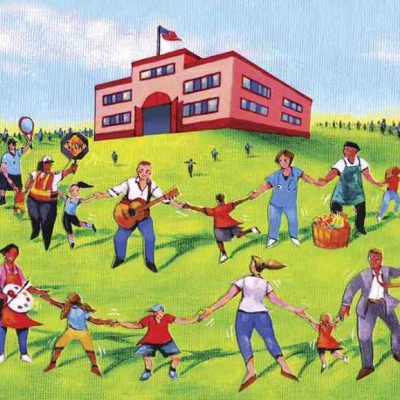Tales of ancestors are still relevant
Human stories across generations have helped guide us through moral reasoning. These stories and mythologies should not be forgotten or doubted due to their rich teachings. Mythical stories that include creatures like dragons have been part of our history for centuries, teaching humans important life lessons that are still relevant today.
There are several renditions of the typical dragon across time, inlcuding the Mesopotamia dragon, Chinese dragon, South American dragon, and the medieval European dragon. According to an article by James Burch of All Things Interesting, “Greek mythology includes several battles with serpent-monsters,” and China is known to have the “longest continuous tradition of dragon stories.” These stories are dated back 5,000 years. Dragons also show up in the North American plains, and in the Mayan and Aztec cultures, “most famously as the plumed serpent god Quetzalcoatl.”
The main similarities with these beasts are their looks and the influences they had on the community at the time. These “coincidences” are linked to humans as a whole. How can a very specific beast, like a dragon, be spread across the whole world? There has to be a deeper meaning to these stories. We should not put aside oral histories that our ancestors have passed down.
There is a reason for all these mythologies and stories. Why do you think humans made up the dragon mythology, and not just dragons but other myths? It was to tell a story, to make a lesson. Researchers have hypothesized that dragons as we conceive of them are made up of several different natural threats, like tigers, lions, snakes, and other predatory animals. We as humans put all those threats together, combining “universal fears” and creating the myth of the dragon.
The point of oral stories is to learn and pass down lessons. Think back to any historical event and you will find something that we can learn from today. Consider Greek mythological stories, like those of Prometheus or Icarus, which all have underlying lessons and warnings to take away.
Greek mythology isn’t the only instance of these types of oral histories being passed down, though they are a very famous example. Aboriginal Australians have been passing down oral stories for thousands of years, as far as 12,450 years ago. These are not just moral or ethical stories – stories that teach you a life lesson so you tell your kids and your kids tell your kids – but also accurate historical and geological information that Western science is only beginning to corroborate. For example, “some tribes can still point to islands that no longer exist—and provide their original names.” researchers say some Indigenous Australian ancestors “accurately described geographical features that predated the last post-ice age rising of the seas.” People and their ancestors native to a region have an underestimated and expansive knowledge of the land and how it works, accurately describing events and landmarks.
To get to where we are today as a species, we learned from our mistakes, we learned from each other as humans together. Using background knowledge, creativity, and curiosity is the key to moving forward as a person and society. Many different civilizations have lots of information that we can continue to learn from today. If people continue dismissing ancestral knowledge, then what life lessons might they miss out on?










